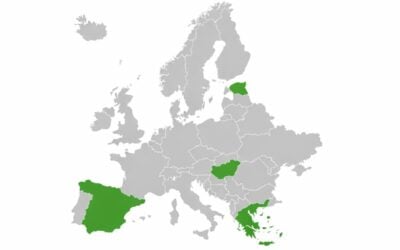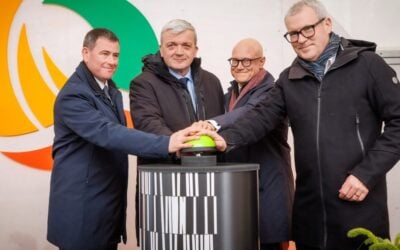
Lithuania’s government will publish a call for applications tomorrow (10 October) for a scheme to support energy storage, which is deemed crucial to the country’s energy security.
The Baltic state’s Ministry of Energy said earlier this week (7 October) that it has approved conditions for increasing funding for the ongoing programme, administered by the government department’s Environmental Project Management Agency (EPMA).
An additional €45 million (US$52.3 million) in funding has been pledged, on top of the original €102 million commitment to the scheme. The support is targeted at the deployment of 1,700MW/4,000MWh of energy storage facilities.
The money will come from a total package of €180 million approved by the European Union (EU) in 2024 through its Temporary Crisis and Transition Framework (‘TCTF’).
Try Premium for just $1
- Full premium access for the first month at only $1
- Converts to an annual rate after 30 days unless cancelled
- Cancel anytime during the trial period
Premium Benefits
- Expert industry analysis and interviews
- Digital access to PV Tech Power journal
- Exclusive event discounts
Or get the full Premium subscription right away
Or continue reading this article for free
The ministry said the call will fund projects both from new applicants and those that applied previously but had yet to receive commitments through the existing scheme. However, those with prior applications would have to cancel those and reapply.
The additional funding pledge went from a proposed €37 million last year to the new amount, due to what the government said was a high volume of quality applications. It also revised its ambitions upwards for the scheme’s targeted 1.2GWh of projects.
The government is seeking at least 15MW output and no greater than 300MWh storage capacity per project, with maximum subsidies capped at up to 30% of eligible costs and a maximum funding amount per megawatt-hour of €100,000.
Decisions will need to be made quickly, as the disbursements must be committed by the end of this year. Therefore, applications will be accepted within 15 working days of the call tomorrow. Successful project bids must be implemented within 36 months of the signing of contracts.
Lithuania was an early adopter of energy storage among the three Baltic States, which disconnected from the electricity grid shared with Russia and Belarus toward the beginning of this year. In doing so, the grid operators of Lithuania, Latvia and Estonia synchronised instead with the European network.
Ahead of this move, Lithuania’s transmission system operator (TSO), LitGrid, deployed a four-project, 200MW/200MWh portfolio of storage-as-transmission asset battery energy storage systems (BESS) from Fluence, designed to support the grid through the process.
There have also been numerous privately developed projects announced in the country over the past year, while smaller, but strategically significant, steps forward have been taken in Estonia and Lativa too in recent months.
At the Energy Storage Summit Central and Eastern Europe 2025 last month, the audience heard that ancillary services prices in the Baltic States had been “through the roof” of late, making it an attractive market for storage investors.
This came as the region is no longer able to rely on Russia for its grid-balancing flexibility, and also as the three nations target greater reliance on variable renewable energy (VRE).
Regulatory framework to be created by 2028
“High-capacity electricity storage facilities are becoming an important link in our energy system – they help balance production and consumption, increase system reliability and enable the ever-better integration of renewable energy resources,” energy minister Žygimantas Vaičiūnas said in a statement (translated).
The minister is currently embroiled in a political tug of war of party allegiances that saw his department appoint deputies to oversee topics including energy storage and renewables earlier this week.
Vaičiūnas added that the addition of storage and greater grid interconnection with the European grid via Poland creates “favourable conditions for the development of renewable energy and the strengthening of the entire regional market.”
A planned offshore wind tender for Lithuania was cancelled a few days ago after too few bid submissions were received.
The ministry also said this week that it plans to create a suitable regulatory framework for incorporating energy storage into system planning by 2028, supporting its goal of expanding storage installations in Lithuania to 1.5GW/4.4GWh nationwide.





